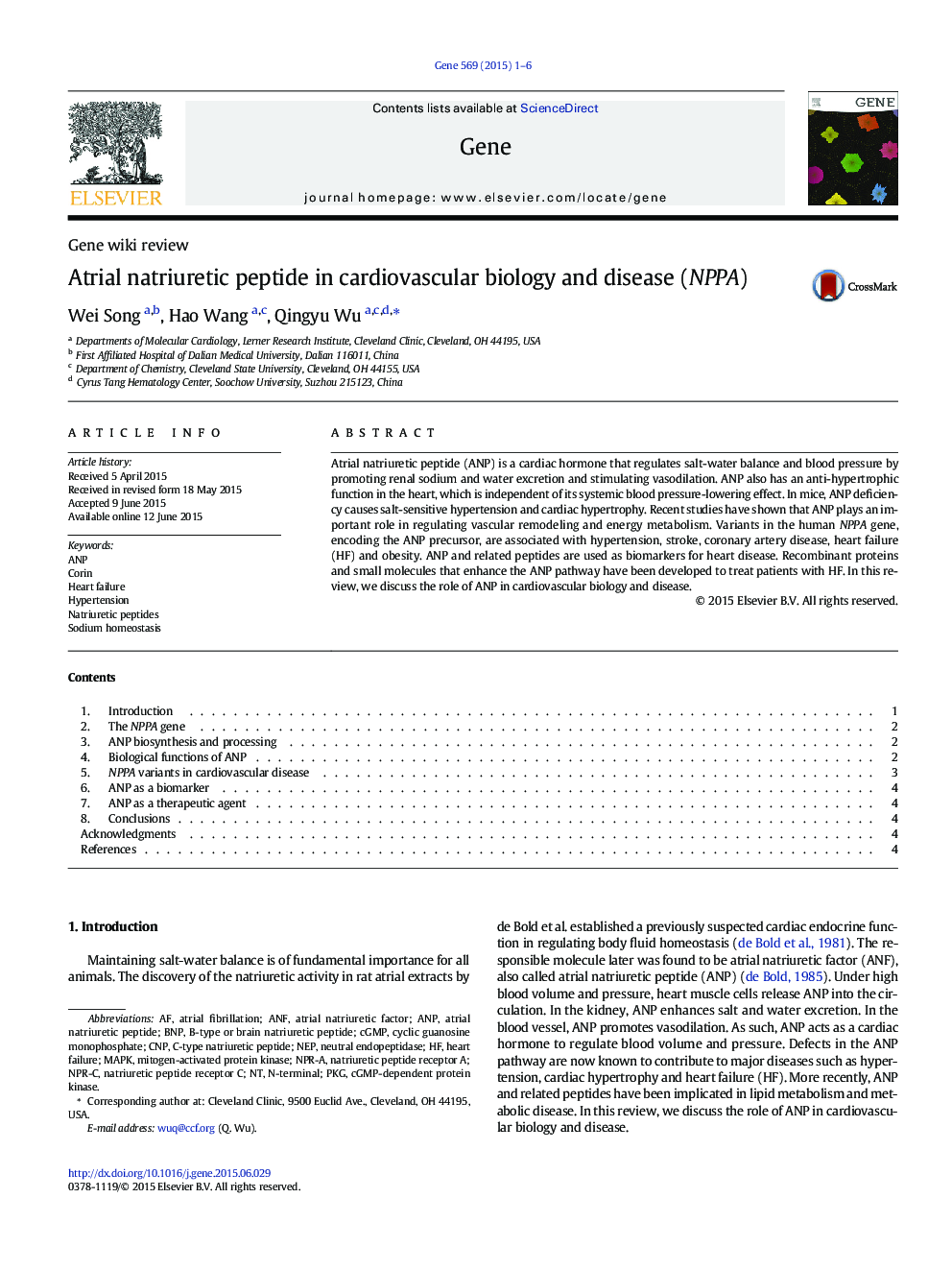| کد مقاله | کد نشریه | سال انتشار | مقاله انگلیسی | نسخه تمام متن |
|---|---|---|---|---|
| 2815551 | 1159878 | 2015 | 6 صفحه PDF | دانلود رایگان |

• Atrial natriuretic peptide (ANP) is a hormone that regulates salt-water balance.
• ANP acts in the heart to prevent cardiac hypertrophy.
• ANP also regulates vascular remodeling and energy metabolism.
• ANP variants are associated with cardiovascular and metabolic diseases.
Atrial natriuretic peptide (ANP) is a cardiac hormone that regulates salt-water balance and blood pressure by promoting renal sodium and water excretion and stimulating vasodilation. ANP also has an anti-hypertrophic function in the heart, which is independent of its systemic blood pressure-lowering effect. In mice, ANP deficiency causes salt-sensitive hypertension and cardiac hypertrophy. Recent studies have shown that ANP plays an important role in regulating vascular remodeling and energy metabolism. Variants in the human NPPA gene, encoding the ANP precursor, are associated with hypertension, stroke, coronary artery disease, heart failure (HF) and obesity. ANP and related peptides are used as biomarkers for heart disease. Recombinant proteins and small molecules that enhance the ANP pathway have been developed to treat patients with HF. In this review, we discuss the role of ANP in cardiovascular biology and disease.
Journal: Gene - Volume 569, Issue 1, 10 September 2015, Pages 1–6